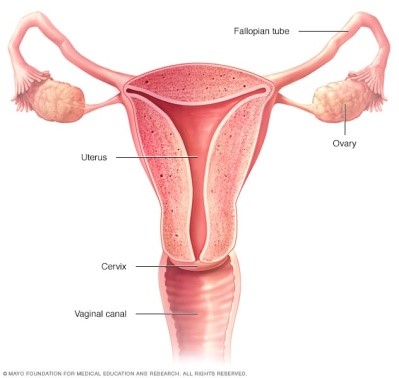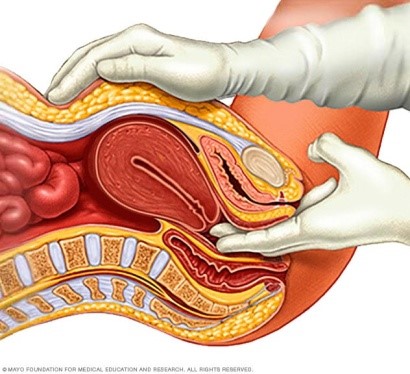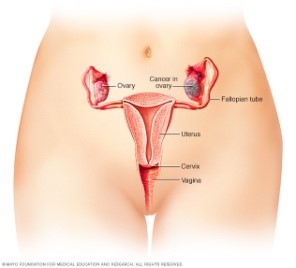


Ovarian cancer is the growth of cells that forms in the ovaries. The cells multiply quickly and can invade and destroy healthy body tissue.
The female reproductive system contains two ovaries, one on each side of the uterus. The ovaries — each about the size of an almond — produce eggs (ova) as well as the hormones estrogen and progesterone.
Factors that can increase your risk of ovarian cancer include:
When ovarian cancer first develops, it might not cause any noticeable symptoms. When ovarian cancer symptoms happen, they're usually attributed to other, more common conditions.
Signs and symptoms of ovarian cancer may include:
When to see a doctor
Make an appointment with your doctor if you have any signs or symptoms that worry you.
Pelvic Exam
Tests and procedures used to diagnose ovarian cancer include:
Your doctor might also test your blood for tumor markers that indicate ovarian cancer. For example, a cancer antigen (CA) 125 test can detect a protein that's often found on the surface of ovarian cancer cells. These tests can't tell your doctor whether you have cancer, but they may provide clues about your diagnosis and prognosis.
Treatment of ovarian cancer usually involves a combination of surgery and chemotherapy. Other treatments may be used in certain situations.
Operations to remove ovarian cancer include: